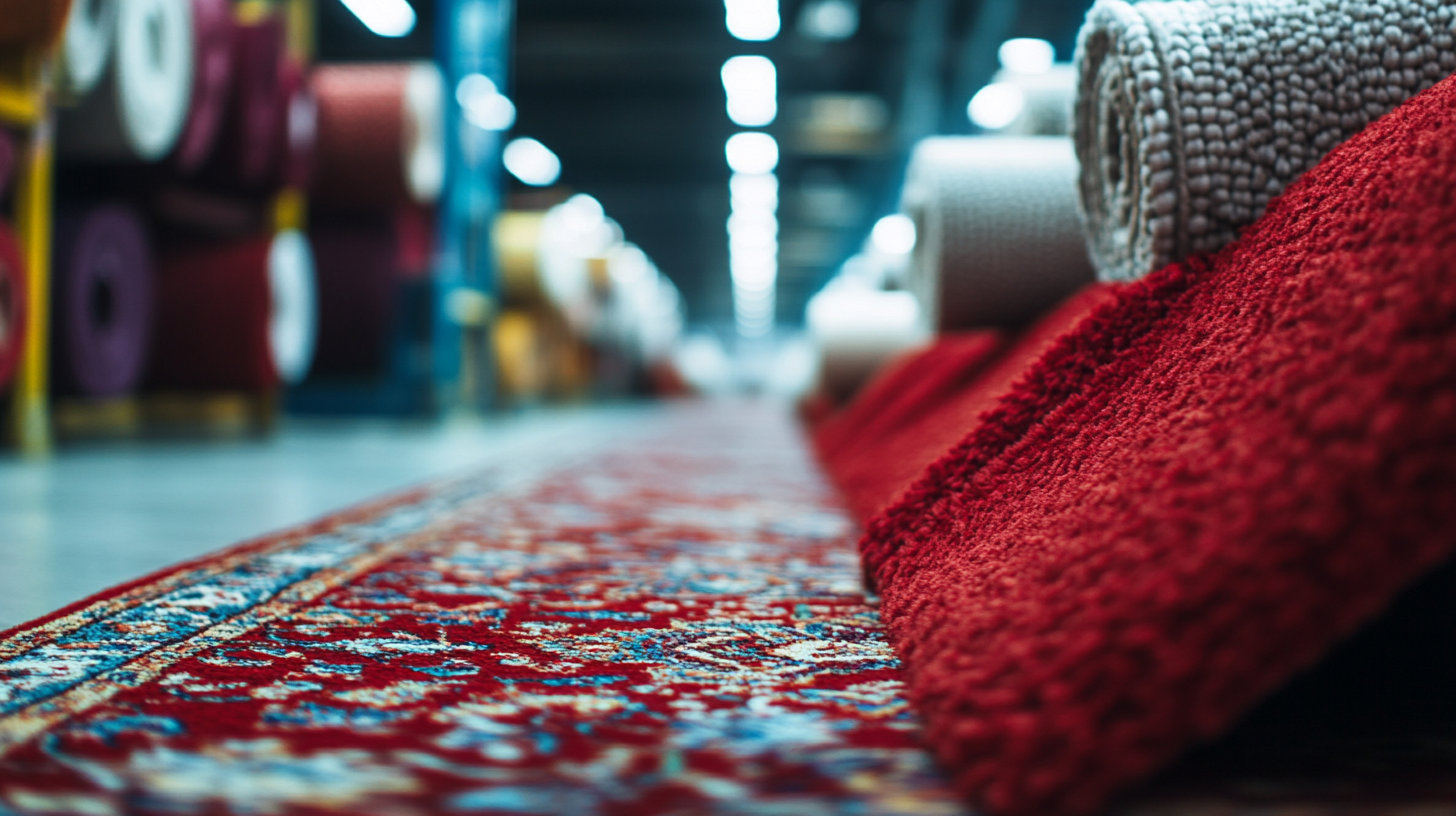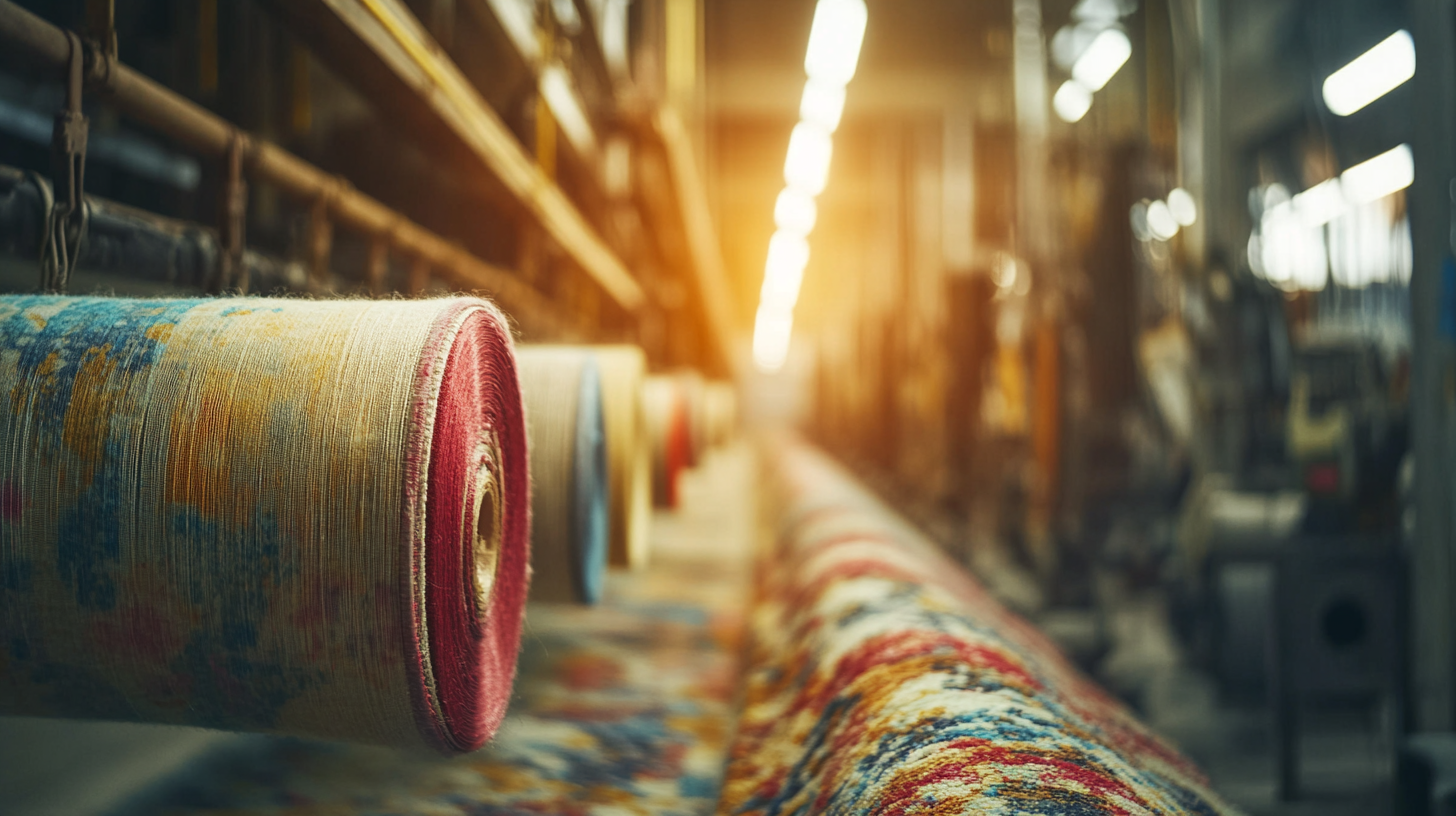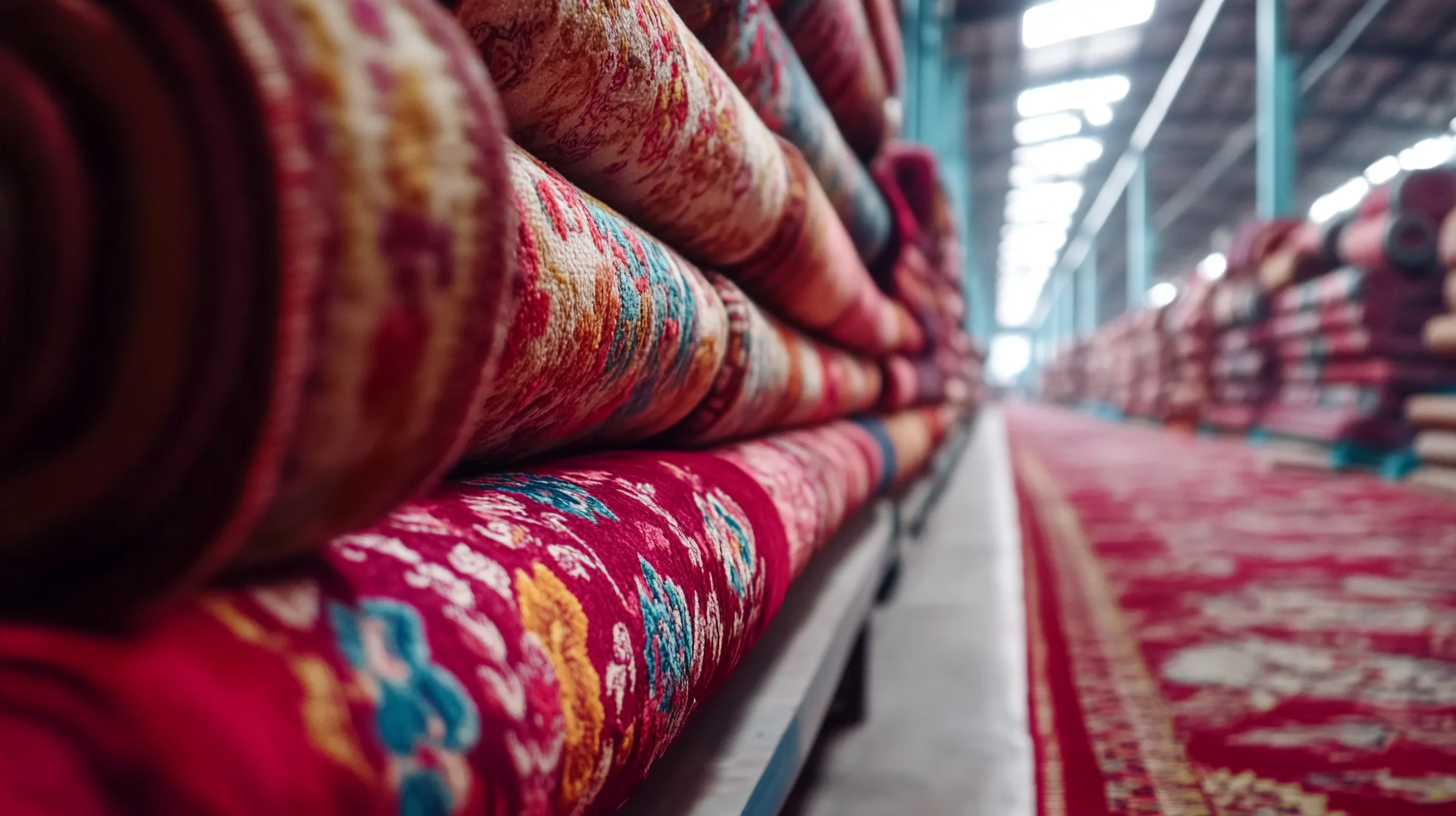
-
Home
-
About Us
-
Products
-
News
-
Blog
-
Contact Us
Leave Your Message

In the face of escalating tariffs between the United States and China, the manufacturing sector in China has demonstrated remarkable resilience, particularly in the production of soft carpets that enhance the ambiance of modern homes. As consumers increasingly seek comfort and aesthetic appeal, the demand for soft carpet bedroom decor continues to rise, showcasing the ability of Chinese manufacturers to adapt and thrive amidst international trade challenges. Despite the looming threats posed by tariffs, which often drive up costs and complicate supply chains, Chinese manufacturers have innovated their processes and sought new markets, ensuring that high-quality soft carpets remain accessible. This blog will explore how the soft carpet industry not only navigates the turbulent waters of US-China trade relations but also celebrates a flourishing demand for home textiles that transform spaces into cozy havens.

China's robust manufacturing sector continues to demonstrate impressive growth, particularly in the soft carpet industry, despite the ongoing challenges presented by US-China tariff disputes. The carpet production segment has shown resilience, benefiting from the country’s strategic focus on high-quality manufacturing and technological advancements. As global demand for soft carpets rises, China stands at the forefront, leveraging its established supply chains and manufacturing capabilities.
According to industry reports, the global market for fatty acids is projected to grow from $5.79 billion in 2025 to $7.86 billion by 2032, reflecting a compound annual growth rate of 4.4%. This trend illustrates the increasing importance of sustainable and high-quality material production across various sectors, including textiles and carpets. Furthermore, the focus on producing greener products aligns with China’s broader commitment to ecological and environmental considerations, as highlighted in recent provincial policies aimed at enhancing the manufacturing landscape.
Zhejiang Province's private sector has emerged as a significant contributor to this manufacturing renaissance, exhibiting resilience and dynamism that fuel the region's economic growth. The recognition of successful enterprises underscores the importance of innovation and strategic investment in enhancing competitiveness within the industry. As China continues to evolve its manufacturing capabilities, the soft carpet sector exemplifies the nation’s ability to adapt and prosper amid global economic challenges.
The ongoing US-China trade tensions have significantly influenced various sectors, with the soft carpet industry being a notable example. Tariffs imposed on Chinese imports have reshaped the competitive landscape, compelling manufacturers to adapt their strategies. Despite facing higher costs, China's soft carpet producers have demonstrated remarkable resilience, leveraging their established supply chains and innovative manufacturing processes to maintain exports. By focusing on quality and customization, they have managed to retain market share even amidst fluctuating tariffs.
In response to the challenges posed by tariffs, many Chinese manufacturers have begun diversifying their operations. Some are exploring alternative markets beyond the US, while others are investing in local production facilities in response to rising demands. Additionally, by enhancing their e-commerce capabilities, they are connecting directly with consumers, thus minimizing the impact of tariffs on their bottom line. Data indicates that this adaptability has allowed them not only to survive but also to thrive, ultimately showcasing the robustness of China's manufacturing sector within the global textile industry.

China's carpet manufacturing sector has shown remarkable resilience in the face of US-China tariff challenges, largely driven by continuous innovation and technological advancements. According to a report from the China National Textile and Apparel Council, the carpet industry has experienced a solid growth rate of 6.5% annually, with significant investments in automation and smart manufacturing technologies over the past few years. These developments not only streamline production processes but also enhance the quality and design of carpets, enabling manufacturers to meet diverse consumer demands.
The integration of advanced technologies, such as artificial intelligence and IoT, has allowed Chinese manufacturers to optimize their supply chains and improve operational efficiency. Data from Statista indicates that the use of digital manufacturing tools in the textile sector is expected to increase by 40% by 2025, positioning China at the forefront of the global carpet manufacturing landscape. This tech-driven shift ensures that Chinese companies remain competitive, even amid external pressures, reaffirming their role as key players in the global market.
| Year | Total Carpet Export Value (in million USD) | Growth Rate (%) | Key Export Markets | Innovation Investment (in million USD) |
|---|---|---|---|---|
| 2019 | 3500 | 5.0 | USA, Europe, Asia | 200 |
| 2020 | 3300 | -5.7 | USA, Europe | 250 |
| 2021 | 3800 | 15.2 | USA, Europe, Middle East | 300 |
| 2022 | 4000 | 5.3 | USA, Europe, Asia | 350 |
| 2023 | 4200 | 5.0 | USA, Europe, Southeast Asia | 400 |
In recent years, the manufacturing of soft carpets in China has demonstrated remarkable resilience, especially in the face of ongoing tariff pressures from the United States. As consumers become increasingly eco-conscious, the demand for eco-friendly carpets has surged, creating new opportunities for manufacturers. These carpets, often made from sustainable materials, not only meet governmental regulations but also cater to a growing segment of environmentally aware consumers.
For those considering a purchase, it’s essential to look for certifications that indicate eco-friendliness, such as Green Label Plus or Global Organic Textile Standard (GOTS). Additionally, consider the life cycle of the carpet; investing in high-quality, durable products can reduce waste and long-term costs.
Manufacturers should also keep an eye on market trends, including consumer preferences for natural dyes and biodegradable fibers. By adapting product lines to include these materials, companies can better position themselves in a competitive market while appealing to eco-minded customers. Embracing sustainability in manufacturing not only addresses current tariff challenges but also prepares businesses for future growth in an increasingly green-conscious market.
China continues to demonstrate remarkable resilience in its manufacturing sector, particularly in the production of soft carpets, despite the ongoing tariff challenges posed by the United States. An analysis of China's carpet export performance reveals a compelling narrative when compared to its global competitors. While other nations face significant setbacks due to rising production costs and stringent regulations, Chinese manufacturers have leveraged technology and efficient supply chains to maintain competitive pricing and quality.
The comparative analysis highlights that China's dominant position in the carpet industry stems from its ability to adapt swiftly to market changes. In contrast to countries like India and Turkey, which rely heavily on traditional crafting techniques, China has invested in advanced machinery and automated processes. This strategic shift not only enhances productivity but also allows for the rapid introduction of innovative designs that cater to evolving consumer preferences. As a result, many international buyers are increasingly turning to China despite the tariff barriers, reaffirming its status as a key player in the global soft carpet market.
